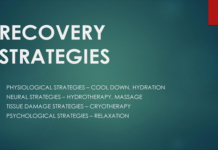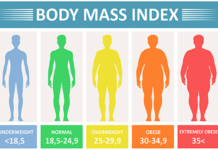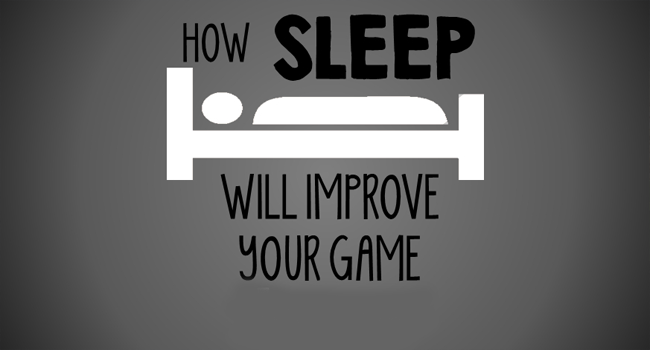In an international constantly humming with hobbies and obligations, sleep often takes a backseat to the demands of current lifestyles. However, its significance can’t be overstated. Sleep is not simply a duration of rest; it’s a vital factor of usual health and well-being, influencing each component of our bodily, mental, and emotional functioning. In recent years, research has increasingly highlighted the profound effect of sleep on various aspects of our lives, revealing it to be a real recreation-changer in the realm of fitness and wellbeing.
Understanding Sleep:
Before delving into the transformative electricity of sleep, it is critical to apprehend what transpires throughout this passive country. Sleep is a complex technique characterized by excellent stages, each serving precise features essential for our health.
The sleep cycle accommodates two essential kinds: rapid eye motion (REM) sleep and non-speedy eye motion (NREM) sleep. NREM sleep is similarly divided into three stages, every related to specific brain wave styles and physiological adjustments. As we develop through these stages, our bodies undergo restoration, healing, and consolidation of reminiscences.
Physical Health:
One of the most apparent benefits of first-rate sleep is its profound effect on bodily health. Adequate sleep is critical in supporting immune characteristics and assisting the frame to fend off infections and illnesses. Conversely, continual sleep deprivation can weaken the immune system, leaving individuals extra at risk of diseases ranging from the not-unusual cold to continual conditions like diabetes and cardiovascular ailment. Moreover, sleep is intricately connected with metabolic health. Insufficient sleep disrupts hormonal stability, central to alterations in appetite-regulating hormones, including leptin and ghrelin.
Consequently, sleep-disadvantaged individuals may experience improved cravings for excessive-calorie meals, contributing to weight gain and obesity. Over time, this can increase the threat of metabolic problems like type 2 diabetes and metabolic syndrome.
Furthermore, adequate sleep is critical for the most fulfilling cardiovascular fitness. Research shows that inadequate sleep is related to an accelerated threat of hypertension, coronary heart sickness, and stroke. During sleep, the frame undergoes strategies that assist in regulating blood strain and reducing irritation, thereby selling cardiovascular well-being.
Cognitive Function:
Sleep plays a pivotal role in cognitive characteristics, affecting numerous cognitive processes, including attention, reminiscence, selection-making, and hassle-solving. Quality sleep is vital for learning and reminiscence consolidation, as it helps the transfer of statistics from short-time period to lengthy-time period reminiscence storage. Furthermore, sleep deprivation impairs cognitive performance across multiple domain names. It diminishes attention span, slows reaction times, impairs judgment, and compromises selection-making talents. These cognitive deficits may have distance-attaining results, impacting overall educational and occupational performance and increasing the danger of accidents and mistakes. Conversely, sufficient sleep complements cognitive skills, fostering creativity, essential questioning, and emotional regulation. It promotes intellectual clarity and enables fact processing, allowing individuals to perform at their cognitive level.
Emotional Well-Being:
The relationship between sleep and emotional well-being is bidirectional: sleep impacts mood, and mood, in turn, influences sleep. Chronic sleep deprivation is intently related to temper issues, which include despair and anxiety. Sleep disturbances disrupt emotional law circuits inside the brain, exacerbating negative emotions and lowering resilience to stress. Conversely, prioritizing sleep can have a profound impact on emotional fitness. Quality sleep enhances emotional stability, resilience, and usual psychological well-being. It fosters a superb outlook, improves pressure management, and complements interpersonal relationships. Moreover, good enough sleep plays a crucial role in mental fitness recuperation, supporting individuals undergoing remedy or remedy for diverse mental situations.
Performance and Productivity:
Performance and productivity are particularly valued attributes in an ultra-modern, fast-paced society. Yet, paradoxically, the relentless pursuit of productivity often comes at the price of sleep. However, studies indicate that sacrificing sleep in the call of productivity is counterproductive. Quality sleep is essential for high performance and productivity across various domains, including painting, lectures, athletics, and innovative interests. It complements cognitive function, creativity, trouble-solving talents, and choice-making talents.
Moreover, enough sleep is critical for sustained consciousness, attention, and intellectual readability, permitting individuals to tackle tasks efficiently and effectively. Furthermore, sleep is essential in motor ability acquisition and athletic performance. Athletes who prioritize sleep enjoy enhancements in reaction times, coordination, and physical staying power. Similarly, college students who get enough sleep perform higher academically, demonstrating superior learning and memory retention.
Tips for Optimizing Sleep:
Given the myriad benefits of sleep, it’s vital to prioritize sleep hygiene and adopt behaviour conducive to exceptional relaxation. Here are some proof-based strategies for optimizing sleep:
Maintain a constant sleep timetable: Go to your mattress and wake up simultaneously each day, even on weekends, to regulate your body’s internal clock.
Create a snooze-pleasant environment: Ensure your bedroom is dark, quiet, and funky, conducive to relaxation and restful sleep.
Limit publicity to monitors before bedtime: The blue light emitted by digital devices can intrude with melatonin manufacturing and disrupt sleep. Aim to strengthen electronics a minimum of an hour before bedtime.
Practice relaxation strategies: Engage in relaxation physical games such as deep breathing, meditation, or modern muscle rest to unwind before bedtime and signal in your body that it is time to sleep.
Watch your caffeine intake: Limit your caffeinated beverages, mainly in the afternoon and nighttime, as caffeine can interfere with sleep onset and pleasantness.
Establish a bedtime routine: Engage in calming activities before the mattress, consisting of analyzing, taking a heat bath, or paying attention to a soothing tune to signal your body that it’s time to wind down.
Monitor your sleep habits: Keep a snooze diary to tune your sleep styles, discover any issues or patterns of sleep disturbances, and make necessary modifications to enhance sleep best.
Consider professional assistance if needed: If you continuously conflict with sleep, no matter how you impose wholesome sleep behaviour, consider seeking help from a healthcare professional. Sleep problems, together with insomnia, sleep apnea, and stressed leg syndrome, may additionally require specialized remedies to deal with underlying issues and enhance sleep quality.
Exercise frequently: Engaging in everyday bodily hobbies can sell better sleep via lowering strain, anxiety, and depression, and it can also assist in adjusting the sleep-wake cycle. Aim for at least half of mild workout maximum days of the week; however, keep away from energetic workouts near bedtime, as it can intervene with sleep.
Practice mindful eating: Avoid heavy meals, spicy ingredients, and excessive liquids close to bedtime, as they can disrupt sleep use, causing indigestion or the need for frequent trips to the restroom. Instead, opt for mild, balanced meals and snacks that do not interfere with your potential to sleep.
Conclusion:
In the end, sleep is a health game-changer with ways-attaining implications for physical health, cognitive function, emotional well-being, and universal overall performance and productiveness. Prioritizing sleep isn’t a luxury but a need for health and well-being. Understanding the profound effect of sleep and enforcing strategies for optimizing high-quality sleep can harness the transformative strength of sleep to steer happier, healthier, and more modern lives.






















